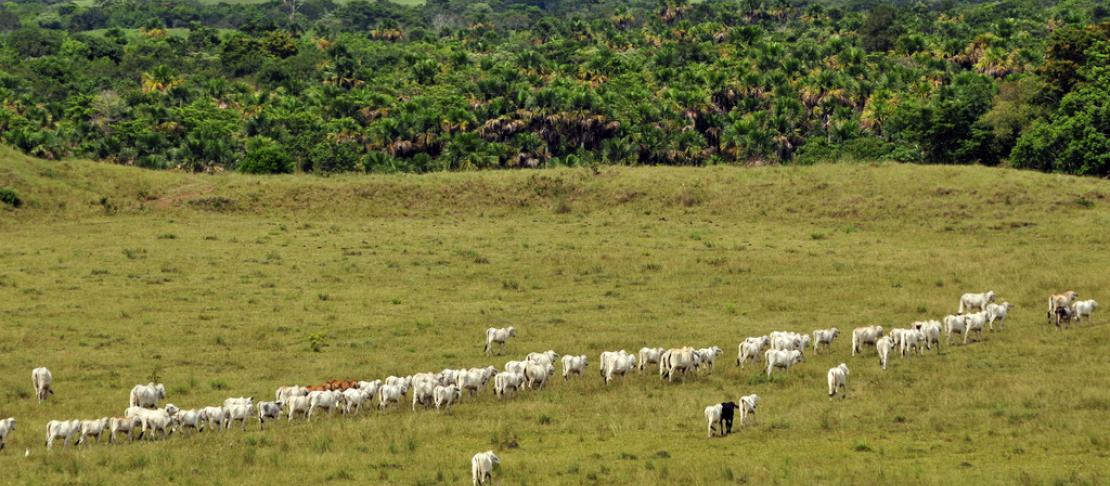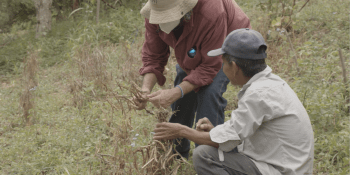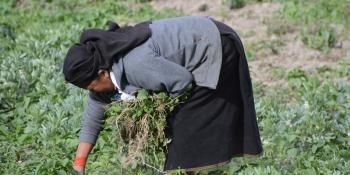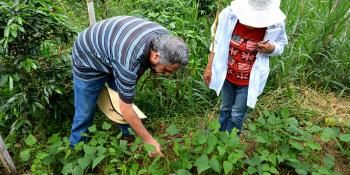Informing national climate mitigation and adaptation plans in Latin America

Extensive project makes sure latest climate and agriculture science informs national adaptation and mitigation plans for Latin America.
Latin America is at a critical point where many national governments and well-organized sectors are developing their climate mitigation and adaptation strategies.
The International Centre for Tropical Agriculture (CIAT), Bioversity International, ONF Andina and the International Potato Centre (CIP) are supporting these processes in the entitled project "Relevant Climate Change Information meets Decision-Making to influence Policy and Institutions for Climate Resilient Food Systems".
The project is part of the CGIAR Research Program on Climate Change, Agriculture and Food Security (CCAFS) and works closely with ministries and research centers in Peru, Colombia, Nicaragua, Honduras, El Salvador, Guatemala, and Costa Rica.
The project team works to make sure that the latest climate and agriculture science is being used for Nationally Appropriate Mitigation Actions (NAMAs) and National Adaptation Plans (NAPs). It is in addition supporting and training country negotiators who attend the United Nations climate negotiations throughout the year to assure that an agreement on climate and forestry is being reached, gender is being considered in NAMA/NAP and that negotiators are well prepared to represent their countries.
Evaluating project progress
In November 2014, the team hired an external evaluator to interview Colombian government staff to validate two stories describing evidence-based decision making in the government, partially influenced by science created within CIAT.
Stories of progress, or outcomes, are used in CCAFS to describe medium-term changes in the practice of policy makers or those influencing the policy process, national development agencies and meteorological agencies, service providers to farmers, and sometimes farmers themselves that occur through the adoption, use or influence of a research product.
The first story describes how the Ministry of Agriculture and Rural Development (MADR) and the Ministry of Environment and Sustainable Development (MADS) prioritized mitigation actions for the agriculture and livestock sector through a NAMA partially using CIAT research on regions with highest potential for silvo-pastoral systems and improved pastures.
The second story described how the Colombian National Planning Department (DNP) developed detailed sector level adaptation plans in part as a result of CIAT researchers’ measurement of the economic impacts of climate change in the water, biodiversity and livestock sector.
These outcome stories were validated by an external evaluator, Ricardo Wilson Grau, one of the developers of the “Outcome Harvesting” tool: 'a utilization-focused, highly participatory tool that enables evaluators, grant makers, and managers to identify, formulate, verify, and make sense of outcomes they have influenced when relationships of cause-effect are unknown'.
The evaluator engaged through virtual and in-person interviews with five key informants in MADR, MADS and DNP recommended by CIAT (but independent from CIAT) as key persons knowledgeable about the outcomes. He then obtained their opinion about:
- the evidence of CIAT science’s policy influence as described in the two Outcome Stories;
- their reasoning for taking the actions represented by the two stories; and
- the potential they see for further changes in 2015.
The evaluation validated the content of the two outcome stories and found that the NAMA, which is being drafted, will potentially spark a number of changes in the behaviour, activities, policies or practices of half a dozen major actors in the agricultural and livestock sector of Colombia.
In the second outcome story, the study found that a sectorial study conducted by CIAT/CCAFS contributed to include a strategy for climate-smart agriculture in the 2014-2018 National Development Plan, and to the 2015-2025 national strategy for adaptation to climate change.
This innovative evaluation tool, outcome harvesting, allowed the team to validate that the research has contributed to practice changes. The evaluation also showed that these outcomes promise to have a wave effect with rice producers, cattle ranchers and other agricultural actors poised to take significant actions in 2015 to mitigate the effects of, or adapt to, climate change.
However, the process also challenged the team at CIAT to improve monitoring and evaluation capacity to better capture the far-reaching outcomes to which the project is contributing directly or indirectly towards.
Genowefa Blundo Canto works at the International Center for Tropical Agriculture (CIAT).



